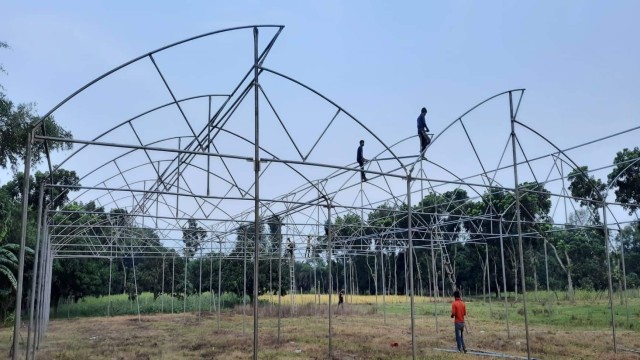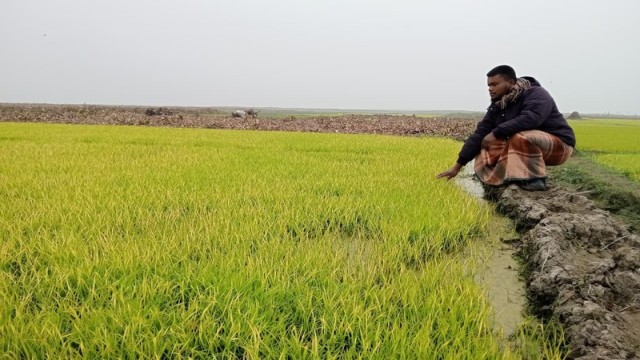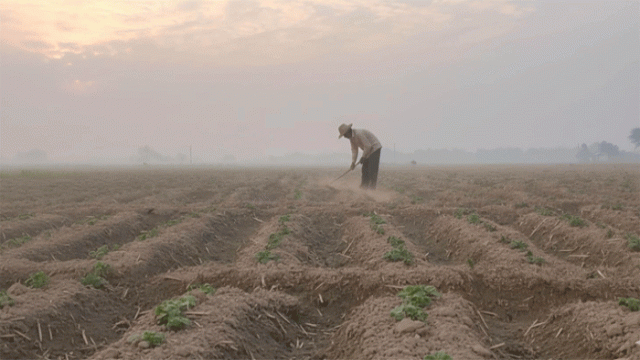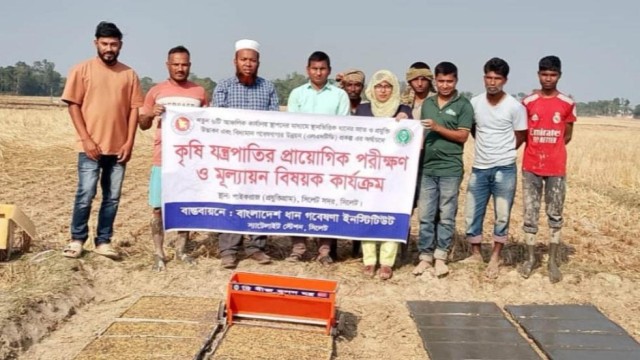Natore, Nov 04 (V7N) — Thousands of farmers in Naldanga upazila of Natore district are facing severe losses after 125 millimeters of unseasonal rain over Thursday and Friday night inundated vast areas of farmland. Triggered by a deep depression over the Bay of Bengal, the heavy rainfall submerged fields of half-ripe and ripe Aman paddy, winter vegetables, and newly planted onion and garlic crops for two consecutive days.
Farmers across the region are in despair as large portions of their paddy plants have collapsed into muddy water, and fish from ponds have washed away. Many are now struggling to harvest whatever remains of their crops. In the low-lying areas of Halti Beel, Sonapatil, Teghoria, Bashila, Patul, Madhnagar, Sarkutia, Mirzapur, Bamangram, and Thakur Laxmikul, fields remain waterlogged and severely damaged.
The Department of Agricultural Extension (DAE) has advised farmers to harvest ripe Aman rice immediately to prevent further damage. Efforts are also underway to drain stagnant water from onion and garlic fields, with officials assuring that agricultural incentives will be provided to mitigate the losses.
According to Md. Ahsan Habib, Deputy Director of the Department of Agricultural Extension in Natore, around 5,340 hectares of crops have been affected by the rainfall, including 5,245 hectares of paddy fields. Although not all the crops are expected to be completely destroyed, overall yields are likely to decline significantly.
Kishowar Hossain, Agriculture Officer of Naldanga upazila, reported that 550 hectares out of 3,499 hectares of Aman paddy fields have been damaged. Additionally, about 7 hectares of onion fields and 4 hectares of garlic fields—belonging to nearly 5,000 farmers—were impacted. Another 11 hectares of winter vegetable plots cultivated by around 7,000 farmers have also been affected.
Farmers in Sonapatil and neighboring villages said the losses are devastating and may take years to recover. Many have appealed to the government for urgent financial assistance to sustain their livelihoods and continue cultivation.
Local agricultural authorities have begun damage assessments and are coordinating with the Ministry of Agriculture to provide emergency support packages for affected farmers. The incident highlights the growing vulnerability of Bangladesh’s agriculture sector to erratic weather patterns linked to climate change.
END/RAN/SMA/































Comment: